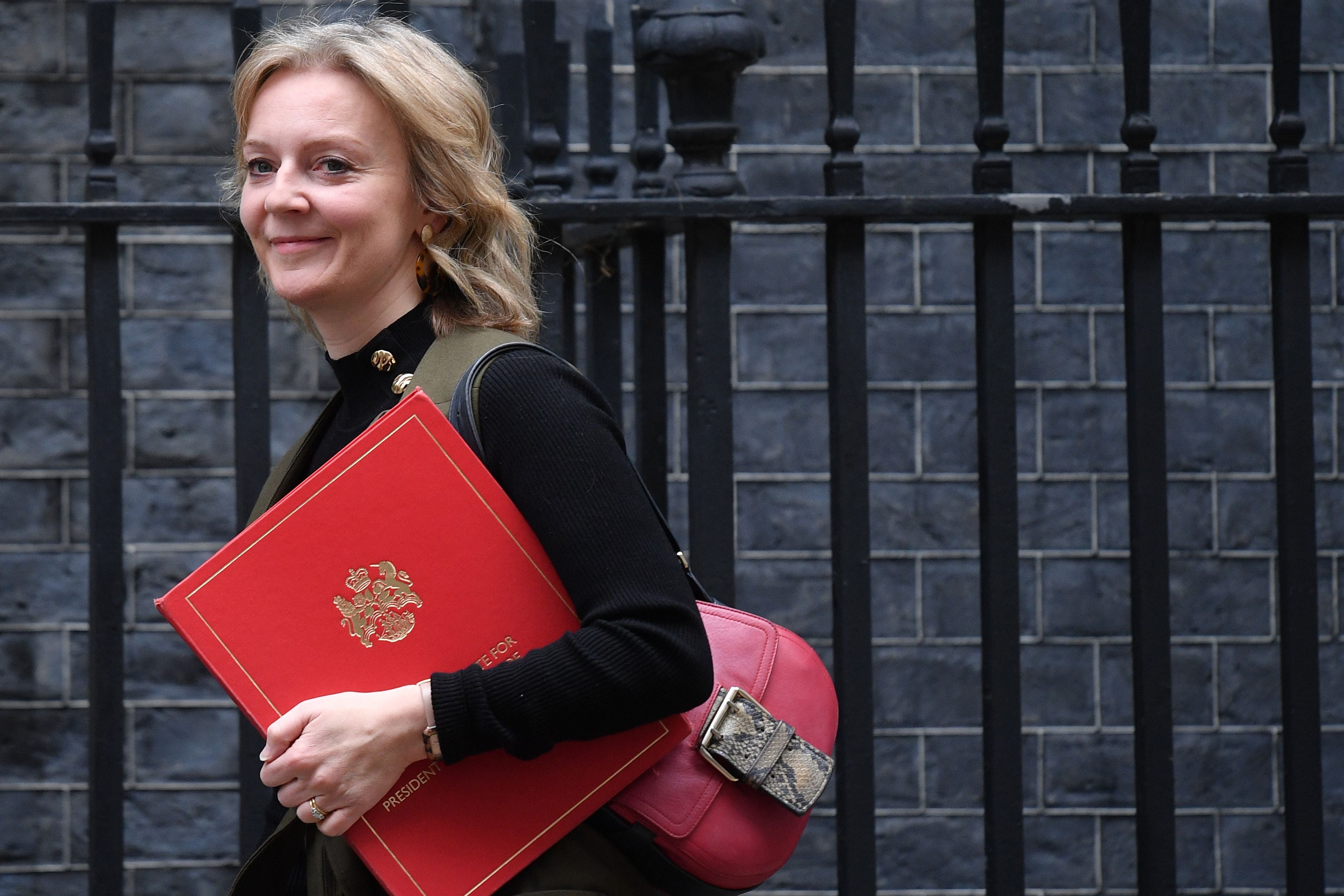British arms sales to Saudi Arabian regime three times higher than previously thought, investigation finds
Probe of secretive open licence system finds total sales since Yemen bombardment began is close £20 billion

Your support helps us to tell the story
From reproductive rights to climate change to Big Tech, The Independent is on the ground when the story is developing. Whether it's investigating the financials of Elon Musk's pro-Trump PAC or producing our latest documentary, 'The A Word', which shines a light on the American women fighting for reproductive rights, we know how important it is to parse out the facts from the messaging.
At such a critical moment in US history, we need reporters on the ground. Your donation allows us to keep sending journalists to speak to both sides of the story.
The Independent is trusted by Americans across the entire political spectrum. And unlike many other quality news outlets, we choose not to lock Americans out of our reporting and analysis with paywalls. We believe quality journalism should be available to everyone, paid for by those who can afford it.
Your support makes all the difference.Britain has exported around three times as much weaponry and military equipment to fuel Saudi Arabia's war in Yemen than previously thought, according to a groundbreaking new investigation.
The government’s official figures say ministers signed off £6.7 billion worth of arms sales to the autocracy such a bombs, missiles, and aircraft since the country started its bombardment of neighbouring Yemen in 2015.
But researchers drilling deeper into official records and those of arms manufacturers say the true figure is likely to be closer to £20 billion because the official numbers do not include sales conducted under an opaque "open licence" system.
The UK government boasts about having "one of the most robust and transparent export control regimes in the world" and publishes the value of arms exports approved under standard licences. It also details what kind of weapons were sold and who they were allowed to be sold to.
But the government also operates a parallel, less transparent "open licence" system which give a more open-ended green light to manufacturers to sell specific armaments to a specific country without a monetary limit.
Between 2014 and August 2019 the UK operated an open licence for bombs and air-to-surface missiles to Saudi Arabia, for a type repeatedly used in the war in Yemen.
Separately, equipment and components for use in the Eurofighter Typhoon aircraft, also used in the same bombardment, have been covered by an open licence.
The researchers also looked at the accounts of companies known to be selling arms to Saudi Arabia and found that the revenues to one company alone – BAE Systems – originating from the Saudi Ministry of Defence & Aviation, totalled nearly £17 billion over the relevant period.
As a result they estimate that the real value of exports is close to £20 billion.
"The use of open licences also offers the government a convenient sleight of hand when it comes under pressure over arms sales to a particular country due to events such as wars, military coups, or well-publicised human rights abuses," the report warns.
The Department for International Trade, which signs off all arms exports, did not dispute the findings of the study but said the UK "takes its export control responsibilities very seriously".
Katie Fallon of Campaign Against Arms Trade, which conducted the research, said: "The use of Open Licences covers up the real extent of the UK arms trade and makes it impossible to know what quantities of weapons are being sold around the world.
"UK-made fighter jets, bombs and missiles have had a devastating impact in the ongoing bombardment of Yemen. The fact that the real total of these sales could be so much higher than previously reported emphasises the central role that the UK government and UK-based companies have played in the war. There must be full transparency about what arms have gone over and in what quantity.
"So much of the arms industry takes place in secret, and that’s how the arms dealers like it. As long as the widespread use of Open Licences continues, the true nature and volume of the UK arms trade will remain hidden from scrutiny, and therefore from meaningful control."
The government was told by the Court of Appeal in June 2019 to stop sales to Saudi Arabia, after a judge said ministers had “made no concluded assessments of whether the Saudi-led coalition had committed violations of international humanitarian law in the past, during the Yemen conflict, and made no attempt to do so”.
Thousands of civilians have been killed in Yemen and the country, with the situation in the country reduced to a humanitarian disaster. Saudi Arabia says it is intervening on behalf of the internationally recognised government of Yemen, which has not controlled the country's capital nor most of its territory for some years. Targets reportedly hit by the airstrikes include schools, hospitals, weddings, and food factories.
Trade secretary Liz Truss resumed arms exports to the country in July 2020 after a Department for International Trade analysis found that there was evidence that Saudi Arabian was committing war crimes. Ms Truss however reasoned that the analysis pointed to the war crimes being "isolated incidents" because they had been of such a variety.
Human rights groups including Amnesty International branded the decision "deeply cynical".
Asked about the new research, a Department for International Trade spokesperson said: “The UK takes its export control responsibilities very seriously and operates one of the most robust and transparent export control regimes in the world.
"We rigorously examine each export licence application on a case-by-case basis against the Consolidated EU and National Arms Export Licensing Criteria.”
“We will not issue any export licences where to do so would be inconsistent with these criteria.”
Join our commenting forum
Join thought-provoking conversations, follow other Independent readers and see their replies
Comments